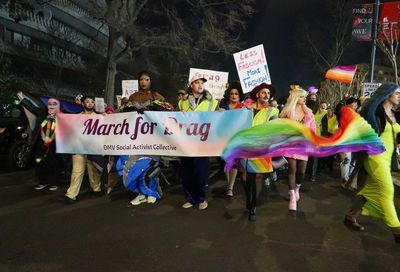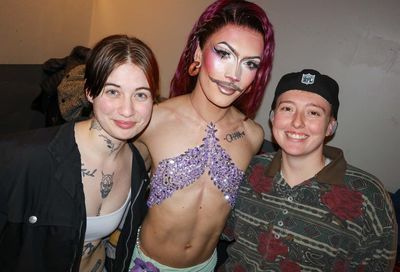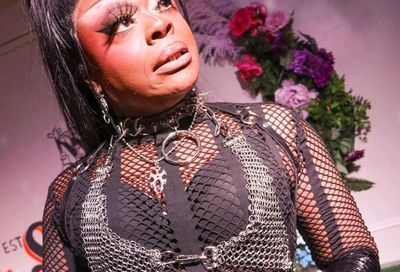Excessive Force
Public order and justice require police who reflect and respect those they serve
When civil disorder followed the fatal shooting of unarmed 18-year-old Michael Brown by Officer Darren Wilson in Ferguson, Missouri on August 9, it was fueled by police aggression that exacerbated existing community mistrust.
Ferguson police, overwhelmingly white in a community two-thirds black, offered a case study in how not to handle lawful protests. While failing to release a proper incident report and initially withholding Wilson’s name, they put out information to imply Brown deserved his fate. Never mind the double standard whereby (say) gun-waving white radicals like Cliven Bundy in Nevada are spared deadly force.
As police innovated daily escalations (infringing First Amendment freedoms, firing tear gas and rubber bullets at reporters and peaceful protesters), community leaders including Alderman Antonio French urged restraint, blocked looters, and transmitted events on social media. Capt. Ron Johnson of the state highway patrol showed maturity by replacing riot gear with respectful community engagement, though events (and some headstrong officers) outflanked him.
Live tweets and subsequent reports reveal belligerent officers with a history of abuse. While demonstrators chanted “Hands up, don’t shoot,” outsiders instigated violence that gave police an excuse to “drop the hammer,” as SiriusXM radio host Mark Thompson put it. A Missouri GOP official called on-scene voter registration efforts “disgusting.” So pointing guns at protesters is not a provocation, but registering voters is?
A campaign on GoFundMe.com raised nearly $250,000 for Officer Wilson. Donor comments included: “I am so sick of the blacks using every excuse in the book to loot and riot,” and references to “protecting normal Americans from aggressive and entitled primitive savages” and rejecting “the failed experiment called diversity.”
Hatred aside, no criticism of lawlessness is sincere that excuses police brutality and overreaction. No criticism of entitlement is coherent that ignores white privilege. Diversity is no experiment but a social fact that cannot be dispelled with military equipment and bounty payments.
Despite crime being down, fear mongering inflates police budgets. A week after the unarmed, mentally ill Ezell Ford was killed by LAPD officers, their colleague Sunil Dutta, writing in The Washington Post, essentially blamed excessive force on victims’ failure to grovel sufficiently. Staring at Dutta’s words, I see the faces of Ford, Eric Garner, Oscar Grant, Sean Bell,Amadou Diallo, Patrick Dorismond, and many other unarmed black men who died before they could hire a lawyer.
In the 1990s, as president of the Gay and Lesbian Activists Alliance, I worked with the NAACP, ACLU, and others to establish independent review of police in the District of Columbia. Civilian oversight is essential to hold accountable those we entrust with badges and guns. Public safety is not served by routine use of methods and equipment designed to confront terrorists. And something is awry when police call a video “exculpatory” that shows them emptying their clips on Kajieme Powell, a mentally ill man with a knife, as if deadly force were their only option.
Those who deny the role of racial bias are confronted not only by data (including a racial profiling report from the Missouri attorney general), but the indelible photo of a young man with braided hair, hands up, facing a phalanx of officers pointing high-powered guns.
On August 15, Mark Thompson got choked up on the air when a 7-year-old who was protesting with his father said he was there because Michael Brown had been shot. The sacrifices of the generation before ours were supposed to keep such ugliness from clouding our children’s spirits.
More work lies ahead. Only by participating in the political process, building trust and cooperation with people unlike us, and using our smartphone cameras to expose official misconduct, can we make America, in Dr. King’s words, be true to what we said on paper.
Support Metro Weekly’s Journalism
These are challenging times for news organizations. And yet it’s crucial we stay active and provide vital resources and information to both our local readers and the world. So won’t you please take a moment and consider supporting Metro Weekly with a membership? For as little as $5 a month, you can help ensure Metro Weekly magazine and MetroWeekly.com remain free, viable resources as we provide the best, most diverse, culturally-resonant LGBTQ coverage in both the D.C. region and around the world. Memberships come with exclusive perks and discounts, your own personal digital delivery of each week’s magazine (and an archive), access to our Member's Lounge when it launches this fall, and exclusive members-only items like Metro Weekly Membership Mugs and Tote Bags! Check out all our membership levels here and please join us today!


















